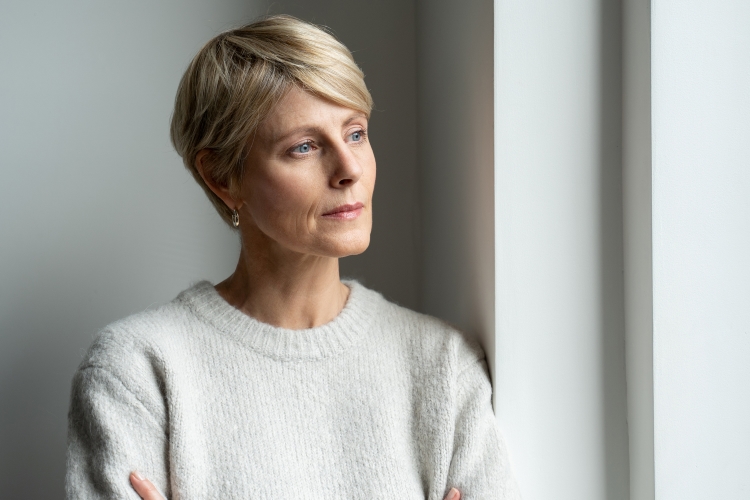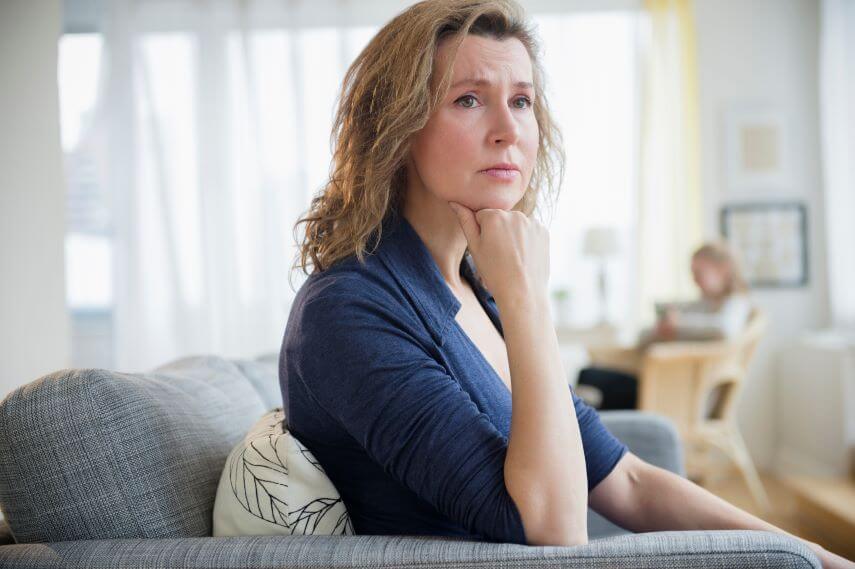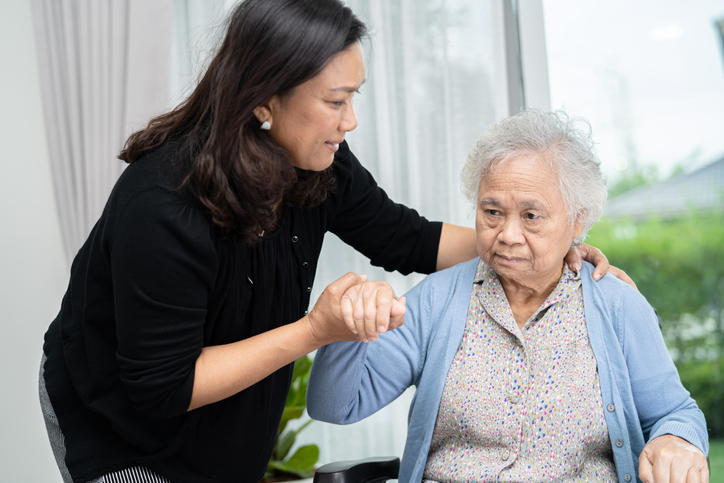Denise Brown is a healthy 53-year-old who also happens to be the founder of the website caregiver.com. Divorced and without kids, she has decided that by the time she is 70, she will move into a Chicago retirement community that offers continuing care, should she need the help.
Brown wants to be able to enjoy her relationships with her nieces, nephews, two sisters and two brothers without burdening them as she gets older and needs help. “My parents and their aging experience has really defined what I want for myself—or rather, don’t want,” she says.
Her mother, 82, and father, 85, live in a condo that offers no services. For a short time, they had lived in a continuing care retirement community. Although her father liked the services and the people there, her mother wasn’t happy and insisted they leave. In Brown’s view, they’re in denial about their health. (Between them, they’ve had cancer surgery, a stroke, internal bleeding, sepsis and multiple hospitalizations.)
“You have to accept the reality of your situation. My parents have not been sensitive to the family and how they are impacting us in difficult ways. I am not doing that,” she says.
When you are single—divorced, never married or widowed—and without a significant other, aging can be particularly challenging. Add no kids, or kids who live far away or are otherwise indisposed, and you are pretty much by yourself.
A lot of folks are in this singleton boat:
- The number of adults ages 45-54 who never married grew 300% between 1986 and 2009.
- The divorce rate for those 50+ doubled between 1990 and 2010.
- Boomers are the generation most likely to be divorced.
- One in three boomers is single.
- Single boomers tend to live alone.
“The rise in unmarried baby boomers raises questions about who will care for them as they age,” says Susan Brown, chair and professor of sociology at Bowling Green State University and co-director of the National Center for Family and Marriage Research. “Traditionally, spouses have been the first line of defense, but now more and more older adults don’t have a spouse at the ready.”
According to a study by Brown and her colleague I-Fen Lin, unmarried baby boomers face greater health, social and economic consequences than their counterparts who have tied the knot—and kept it tied. For example, they are twice as likely to have a disability than those who are married; according to Brown’s research, 19% of those who are unmarried receive some sort of public assistance (compared to just 6% of those who are married).
Of course, many singletons are healthy, have a strong support system and are fiscally fit. They‘re doing just fine on their own. New York University sociology professor Eric Klinenberg interviewed singles for his book Going Solo. He found that many of those living alone love it: rather than feel lonely, they feel engaged in interests, friendships, and the world. Being single and unattached may work well for many in their 40s, 50s, 60s and beyond.
But, alas, we will not stay those ages forever. As we grow older, friends may move away or become sick. Or, we may be the ones who can’t take care of ourselves.
Preparing for the Future
Even adults in great physical, mental and financial shape need to think ahead. (That goes for couples, too.) Here are some areas to consider:
1. Where do you see yourself?
Where do you want to be in 5-10 years? Think about this question in terms of housing, social connections, finances, and caregiving. Do you want to stay in your house or community? Would you consider a cohousing community with built-in support?
What do you want to be doing? Take some time to think about how you can maintain a fulfilling life. Do you see yourself in another field, in a paid or voluntary position? Can you take a night course or online course, or join an interest group? Start your research now to determine how you want to fill your days.
Lee Chase of Glastonbury, Connecticut has owned an aerobics studio, worked as a realtor and is currently an office manager. Divorced and without kids, she is tired of the cold and wants to move in the next few years, perhaps to North or South Carolina or Tennessee.
“I had no children by choice,” Chase explains. “I remember a colleague asking me who would take care of me in later life. I felt that to have children to hope they would take care of me was not a good reason. It still was the right decision. But I am alone now and it is scary.”
Now, the 63-year-old nationally ranked racewalker is talking to friends, and recently to classmates at her high school reunion, to get their input on her plans.
2. How can you nourish your support system?
Rather than avoid it, ask yourself that uncomfortable question: When I get older, who will be there to help me if I get sick or become disabled? It doesn’t have to be your family, but find people who you can call during times distress (and fun).
If you don’t have close friends, identify the kinds of people you want to be around. Find or reclaim a hobby, join a committee or support a social cause in order to identify like-minded people with whom you can create a support system. Meetups are one way to gather a group together. You can join an existing group or start a new one.
Some organizations, such as The Transition Network (TTN), a national, non-profit organization for women age 50+, provide opportunities to interact socially, intellectually and civically. For example, New York City TTN members who are part of the Caring Collaborative program help one another get to medical appointments, provide support to other members when they return home from the hospital, or keep them company when they are not well (but they don’t act as professional caregivers).
3. Are there professionals that can help?
To figure out next steps, you need to know what you can and can’t afford. Does it make sense to speak with a financial advisor? What about looking into long-term care insurance? While you’re investigating these things, do you have all your documents in order (a living will, also known as a healthcare or medical directive; a power of attorney for your healthcare; a power of attorney for your finances; a HIPAA release; and a will)?
Talk to your family and friends about their role in your life, should you become cognitively impaired or physically incapacitated, or be placed in a life-or-death situation. They need to know what you want—and where the supporting documents are.
Just because you are single and without children doesn’t mean that later life has to be difficult. But, preparing for old age is key. Take steps now to plan for a fulfilling future.







What about many of us single good men that were never meant to find love, even when we really try? The women today unfortunately are the very complete opposite from the past when finding love in those days did come so very easy just like it did for our family members. Women have really changed today.
I’m curious as to why you think women are the “complete opposite from the past.” I admit I’m very different from my mother’s generation in that I’ve always felt comfortable living by myself. Also I remember my dad saying I shouldn’t marry just for the sake of being in a couple; instead I should “find someone I can really talk to,” because in the end that’s the most important thing. While I’ve never found this kind of connection with a romantic partner, my close friends fill this bill beautifully. And I’m comforted to know that the younger ones will help me navigate housing issues when the time comes (I’m also doing a little planning of course). Meanwhile, I’ll enjoy the heck out of my solitude and independence.
I I can relate to Jim and Kathy. I am doing fine in just about every way but I’m concerned about the future. I live in a small community and find ” good” people to mingle with. Don’t know exactly what I’m going to do but need socialization and it’s hard to find here.
Even for many of us single men that never met the right woman to settle down with to have a family, we often wonder about that.
I am in the same situation as Kathy but not nearly as prepared as she is. Where do I look for Long Term Care Insurance? As I understand it, Life Insurance is not the same thing. How much does it cost? I never had children. All my relatives live elsewhere, far away from where I live and I don’t know them very well. I have many animals here at my home and plan to be here but how will I manage it when I’m 80? I have no friends, no social circle. I took care of my mom who came down with Alzheimer’s and kept her here at home until her death. I feel that was the best gift I could have given her. I had a caregiver who was such a help, a big help. How will I find someone if I need to? Can I look for someone myself? As much as I don’t want to look at this I have to and I am in relatively good health now at 64. How do I go about doing for myself focusing on getting older?
This is an interesting topic! Thank you for sharing this, Sally! A lot of old people who are single are worried about who would take care of them later on. I agree that being physically, mentally and financially prepared is the key to having a comfortable life in the future. Growing old and alone is not an excuse to live a miserable life. You just have to prepare for old age if you want a fulfilling future. We included your article in our January roundup, which is about strategies for growing old and alone that really work. You can read our article here: http://www.altcp.org/strategies-growing-old-alone/.
Kathy,
It sounds like you have a great life. But that does not mean you shouldn’t plan for your future. The more options you have down the road–and the more time you take researching those options–the more likely you will are to find place that appeals to your older self. Or, if you want to stay where you are, know about Certified Aging in Place Specialists (CAPS) who can evaluate your home and tell you what you need to age in place (fewer steps, wider doorways, converting an office to a first floor bedroom. . .).
The truth is, if you just live day-to-day and there’s a crisis, you may not make the best choices; you may not know what they are. Even if you never need them, you will have peace of mind you’re ready.
I’m 68 divorced and alone. I am in good health, have a strong social network and work 25 plus hours a week. I have many hobbies that I enjoy, but I still worry about what if? My kids live nearby but I don’t want to burden them if I get sick. I’ll be turning 70 soon and I remember my mom at that age starting to mentally decline. She lived to 88 but in a nursing home with dementia. I have Long Term Care insurance but hope I never need to use it. I still feel sharp, have a younger boyfriend who is very active and fun to be with, and we like to travel together. I just renewed my lease on my apartment in a fun community but wonder if it’s time for a retirement community with people my age? I find it depressing, as I see many in wheelchairs, walkers and playing bingo! I couldn’t stand being in a place like that. Do I just keep moving forward and not pause to think about what if? I try not to think about how old I am, and count my blessings for my good health and active lifestyle! Am I crazy to not have a plan?